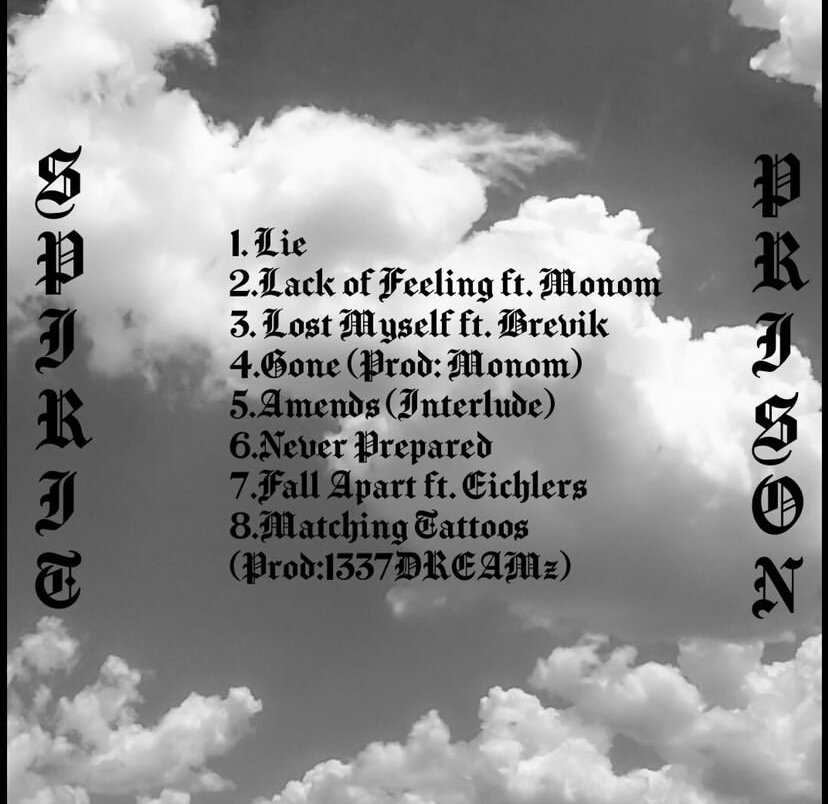Spirit Prison: Album Review
Our darkest selves are composed of the catharsis of art that we create. This is evident in Spirit Prison, the debut album of Spirit Prison, a Salt Lake local rap project comprised of one person, Jade Whitlock. An immensely vulnerable album, Spirit Prison explores Jade’s struggles with addiction, the heaviness that accompanies such struggles, and the process of rising above it all.
Upon first listen, what stands out to me is Jade’s cadence being strongly influenced by their experience in folk-punk. At times both melancholic and shaken, yet never failing to convey bitter reality with unflinching honesty, such a tone translates well into Spirit Prison’s sound and thematic context. What at times seems like self-deprecation comes together as a confrontation with one’s self. The mistakes, the lows, the insecurities, and the courage to face them all down and move on from them. It is in this that Jade wields Spirit Prison’s greatest strength
Perhaps the most noteworthy aspect of the album beyond the introspective honesty of the lyrics and emotionality of their presentation is the melodies of the beats throughout the tracklist. Most of these melodies are conveyed with clean guitar licks, which are consistently well done. They are not too flashy as to detract from the lyricism but are also present enough to hook the listener. Tracks that highlight this are “Lie,” the interlude “Amends,” and “Never Prepared.” The latter especially stands out, as the melody ascends and descends in a rhythm that matches the flow of the vocal presentation well.
My least favorite track is “Gone,” mostly due to product choices and the integration of screams layered over the clean vocals. I can see what was intended with these choices, as it could certainly present a more visceral feeling to what is being said. However, it ends up sounding like a wall of noise, where everything seems to be attempting to overwhelm the other. It is jarring to listen to, which can work in the right situation and genre but doesn’t seem fitting here.
Another aspect of the album that I find to be unfitting is the auto-tuned vocals. They do not appear often, which is a good thing, but when they do it takes away from the song and reduces what is being said. Which is a shame, because the sincerity of the lyrics is the foundation of Spirit Prison’s work. Anything that dilutes them should be avoided. In addition to this, there is a slight monotony to the vocal presence throughout the album. This is not necessarily the most negative thing, as it does fit the thematic elements rather suitably, but it does tend to reduce the overall personality present from track to track.
I also must address the personal bias I have in not being a fan of the percussion used in the variations of Trap that this album utilizes. Especially when the sound is melancholy and focused on melody. I acknowledge that this is mainly a personal preference, and others may not detract from the listening experience.
Overall, Spirit Prison is a promising debut from an artist experimenting in a new genre and sound. Much of what I find to be lacking simply comes down to personal preferences regarding sound choices and various production flaws that are easily remedied moving forward. What matters is that the heart of the project is the passion, the vulnerability, the emotion and the honesty, which are all the most important parts to get right about music. Music, in its wonderful irrationality, overcomes being muzzled by technicalities when the emotion is present, genuine, and vital.







